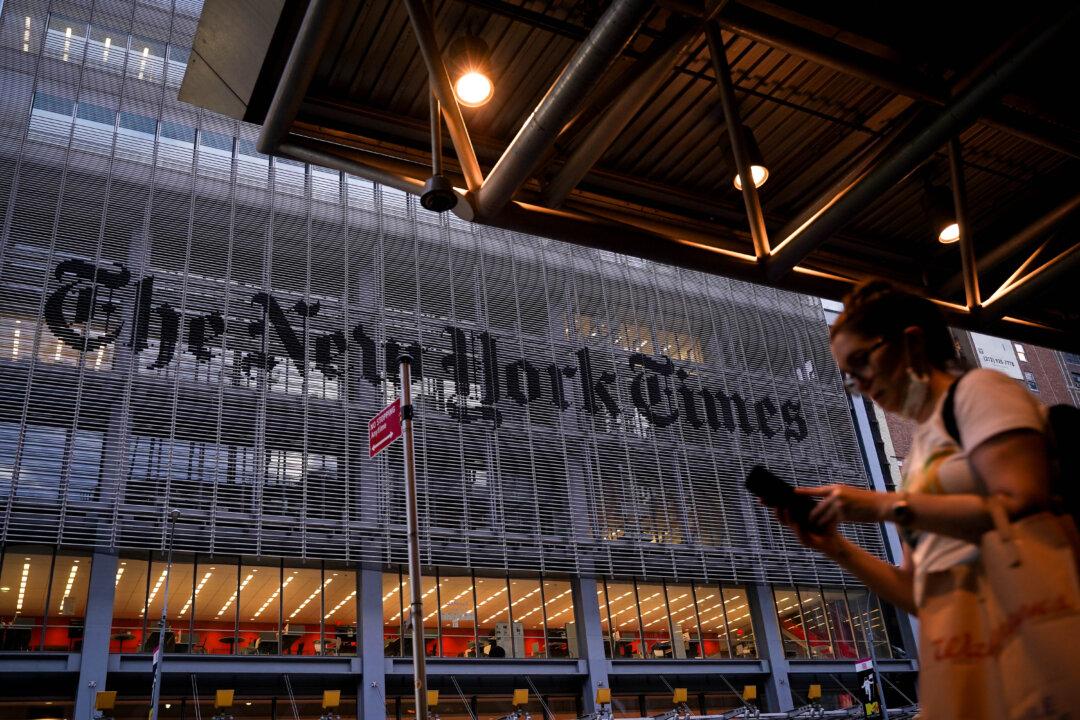A New York judge on Thursday ordered the New York Times to appear in court next week and defend publishing legal documents from Project Veritas and, in the meantime, stop publishing the privileged materials.
Justice Charles Wood said he may order the paper to remove all references to or descriptions to Project Veritas’s privileged attorney-client information and to return and/or immediately delete all copies of the privileged materials in the paper’s possession, unless he was convinced otherwise.





